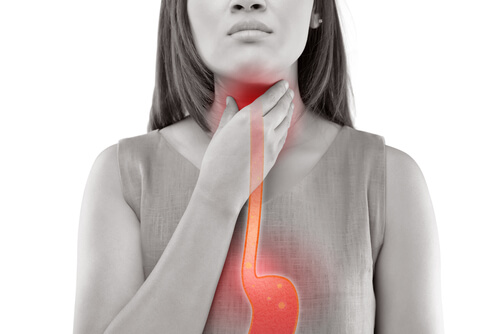Gastro-Oesophageal Reflux Disease - DRHC Dubai General Medicine Clinic
What is gastro-oesophageal reflux disease (GORD)?
GORD is the condition that describes the reflux of acid from the stomach up into the gullet (oesophagus). There is a sphincter muscle at the junction between the stomach and oesophagus. This muscle acts like a valve and allows food to pass down into the stomach; under normal circumstances, it constricts and prevents food and acid leaking back up (refluxing) into the oesophagus. Reflux occurs when the sphincter fails to function properly.
What is oesophagitis?
Oesophagitis is inflammation inside the wall of the oesophagus, which is most likely caused by irritation of acid from the stomach into the oesophagus.
What are the causes of reflux?
Often we do not know why the sphincter fails to prevent reflux, although sometimes the pressure in the stomach rises to a level that the sphincter cannot cope with, such as in pregnancy bending forward for a long period, especially after a heavy meal. A well-known cause is a hiatus hernia, where part of the stomach slips up into the oesophagus. People with a hiatus hernia are most likely to develop reflux. Aggravating factors include smoking, obesity, heavy drinking, and increasing age.
What are the symptoms of reflux and oesophagitis?
- Heartburn, which is a burning feeling in the lower chest and upper abdomen, is common
- Nausea
- Pain in the upper abdomen (epigastrium) and chest
- Acid taste in the mouth
- Bloating and belching
- Cough, especially at night, with possible asthma-like symptoms
The diagnosis may be confirmed by endoscopy, where a narrow flexible telescopic instrument is passed down the oesophagus into the stomach to examine these internal organs.
What are the risks or complications?
Risks are uncommon but include a stricture, which is a narrowing of the lower oesophagus from long-standing oesophagitis. Another concern is Barrett’s oesophagus, where the cells in the lower oesophagus undergo change and have a small potential to develop into cancer.
What is the treatment?
Self-help.
Many factors such as smoking, obesity, chocolate, alcohol, spicy foods, and alcoholic drinks appear to relax the sphincter muscle and increase the risk of acid reflux. So the main things
- Stop smoking.
- Avoid or take aggravating foods in moderation: This includes spicy foods, hot drinks, and coffee especially later in the evening.
- Weight: keep to an ideal weight: If you are obese go on a diet to achieve an ideal weight.
- Posture: avoid bending forward OR lying down
- Bedtime: if symptoms persist at night, go to bed with an empty stomach; don’t eat in the last 2 hours.
- Avoid alcohol before bedtime: Raising the head of the bed up to 10 to 15 cm will help prevent reflux during sleep.
- Medications: avoid medications that make the symptoms worse; examples are anti-inflammatories such as aspirin, ibuprofen, diclofenac, diazepam, nitrates, and calcium channel blockers such as nifedipine.
Medical treatment
- Antacids: alkaline liquids or tablets that neutralize acid can rapidly relieve symptoms. They are ideal to use as required for infrequent and/or mild episodes of heartburn with reflux.
- Acid-suppressing medications: two groups of modern medications are very effective in reducing the amount of acid that your stomach produces. Your doctor will advise on and prescribe the drug that is suitable for you.
- Prokinetic medicines: these medicines speed up the passage of food through the stomach and are very helpful if meals cause disturbing bloating, belching, or a stuck food feeling.
Surgery
Surgery is an option if your reflux is bad, especially with a hiatus hernia. The operation, usually performed through a ‘keyhole’ in the stomach, aims to improve the sphincter effect of the lower oesophagus and prevent reflux.
.png?width=281&height=59&name=bookanappointment%20(1).png)
Dr. Rami Hamed Center offers primary care services and treatment for Gastro-Oesophageal Reflux Disease provided by highly qualified GP Doctors. To make an appointment with the best general health doctor in Dubai call +97142798200




.png?width=281&height=59&name=bookanappointment%20(1).png)


